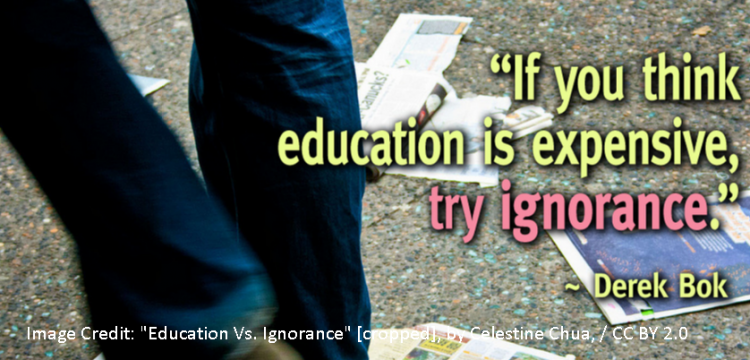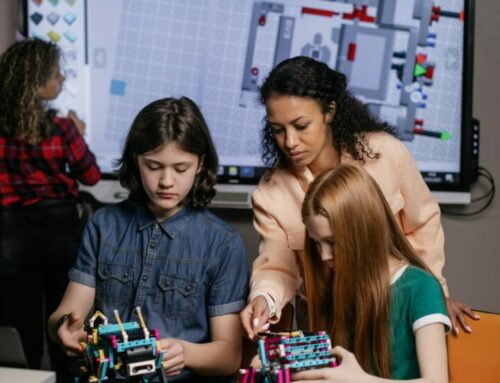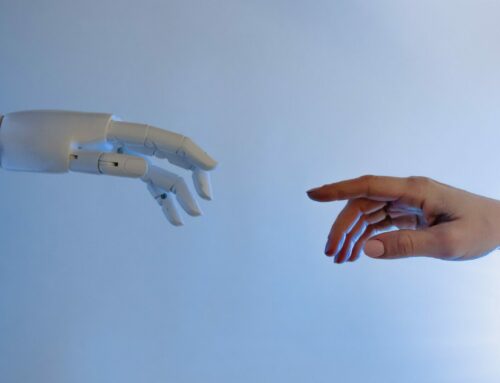Lifelong education as an equalizer
Patrick Blessinger
St. John’s University (NYC) and International HETL Association
Throughout much of human history hereditary privilege was often used as a means of organising society (for example, politically, economically and socially) and allocating resources. Hereditary privilege was not determined by one’s talents or skills or motivation or any other self-determining factor but rather by the class, gender and race one was born into.
In other words, throughout much of human history, one’s status within society and one’s lot in life, to a large degree, was determined primarily by factors beyond one’s own control.
Revolutions upset the established order
The hereditary systems of power and privilege tended to create a system wherein the ruling class benefited by maintaining the status quo and by maintaining a monopoly over how resources were allocated within society. This is not surprising since established orders have a vested interest in maintaining the status quo and they embrace new power systems only if they are required to out of necessity or if they benefit directly from the new system.
The global shift away from caste-like hereditary systems started to change significantly in the late 18th century with the advent of the Industrial Revolution in Great Britain and with the advent of large-scale modern democracies – as a result of, for instance, the American and French Revolutions. These revolutions set the stage for many future world developments in globalism, free markets and democracy, including global decolonisation and the widespread decline of communism throughout the twentieth century.
The reality of pre-industrial societies were based largely on a caste mentality and a feudal system where less than 1% enjoyed more than 99% of the power, privilege and wealth within the society.
Although living conditions for many have changed drastically in the last 200 years, there are many parts of the world where poverty and oppression is still a reality. According to the World Bank, “almost half the world – over three billion people – live on less than $2.50 a day” and according to UNICEF, “nearly a billion people entered the 21st century unable to read a book or sign their names.”
A new measuring stick for individual worth
With the Industrial Revolution, the industrialised economic system soon became a powerful force within society and a new class emerged, namely merchants and entrepreneurs. Social mobility was now theoretically possible to anyone who, with a lot of ambition and some luck, knew how to capitalise on new economic opportunities. Old hereditary systems were gradually replaced – by and large – by new systems which ordered the organisation of society on the usefulness (utility) of the individual to society.
With individual usefulness and performance the new measuring stick by which people were judged, greater responsibility was placed on the individual to be responsible for her/his own welfare and fate. It is perhaps no coincidence therefore that modern liberal democracies emerged around the same time as modern industrialised economies since the foundations of both systems tend to complement and reinforce one another.
These new political and economic systems gradually created a more level playing field, but they also required people to be self-responsible to a degree never imagined before. Yet, in order for people to be self-responsible and self-determining, people also needed greater amounts of formal education to learn how to better function within these new systems.
Thus, it is not surprising that as these modern political and economic systems emerged in the late 18th and early 19th centuries, the idea of universal basic education also gained more traction throughout middle to late 19th century. These modern systems therefore tended to create a self-reinforcing virtuous cycle.
With the advent of modern globalisation and, in particular, the Digital Revolution in the late 20th century, another power system emerged – global higher education.
Lifelong education as an equaliser
The demise of the hereditary system of power and privilege created two competing trade-offs – the emphasis on individual responsibility and merit versus the emphasis on social interdependence and justice. Humans have a strong urge to protect their own self-interest, but, at the same time, humans have an equally strong urge to live in social groups.
However, the strong urge to protect our own self-interest, if taken to an extreme, can also lead to destructive consequences at the social level, such as extreme forms of capital accumulation. At the same time, the growth of globalisation has intensified the move toward interdependent social systems.
So, one important question emerges from this context: how does one satisfy one’s own self-interests while, at the same time, satisfy the needs of the society that one lives in and depends on? The development of democratic societies that are based on principles such as social justice and equitable/equal treatment are intended to address this question.
If there is anything like the so-called “great equaliser” perhaps it lies in universal lifelong education and viewing lifelong learning as a human right. Universal education at all levels provides people with hope to achieve a measure of self-sufficiently and self-determination. It stands to reason therefore that governments and other social institutions have a moral responsibility to help achieve this end.
Merit comes in many forms
We live in a hyper-connected world and in an age of hyper-specialisation where the more knowledge and skills one attains in a specific area, the more she/he becomes dependent on doing that one specialisation.
Many people in our society have several college degrees and yet cannot find work that is commensurate with their education. What is needed is not just more education but also the development of non-quantifiable qualities such as creative thinking, self-discipline, motivation and ethical judgment-making.
Furthermore, we also need more institutional diversification in higher education. To create a more just society we need to create a system of lifelong education that addresses the differences in individual talents and individual career aspirations.
This also means developing an educational ethos that values more than just cognitive development but also making education more personally meaningful for students. This diversity also reflects the pluralistic nature of a democratic system where merit comes in many forms.
Note: this article also appears in the University World News blog at http://www.universityworldnews.com/article.php?story=20150803125916265
Suggested Citation:
Blessinger, P. (2015). Lifelong Education as an Equalizer. Higher Education Tomorrow, Volume 2, Article 6, https://www.patrickblessinger.com/lifelong-education-as-an-equalizer
Or
Blessinger, P. (2015). Lifelong Education as an Equalizer University World News, http://www.universityworldnews.com/article.php?story=20150803125916265
Copyright © [2015] Patrick Blessinger
Disclaimer
Opinions expressed in this article are those of the author, and as such, do not necessarily represent the position(s) of other professionals or any institution.




